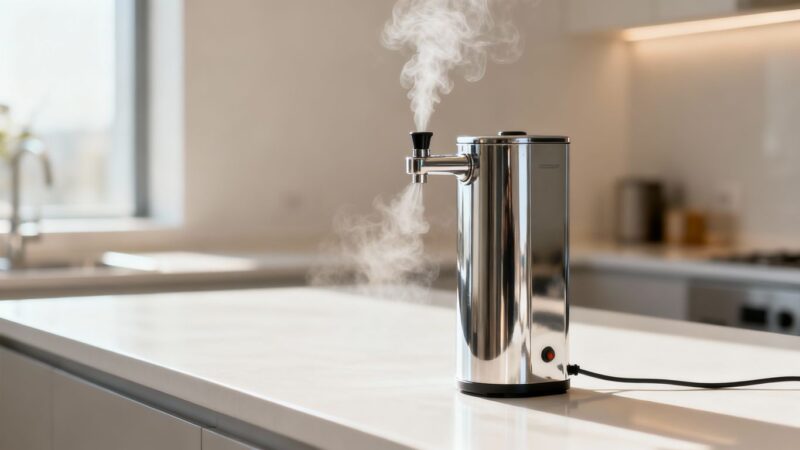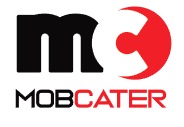Choosing the Right Commercial Water Boiler for Your UK Business

Right then, let’s talk about getting a commercial water boiler for your UK business. It might sound a bit dull, but honestly, having a reliable way to get hot water on demand is a game-changer, whether you’re running a busy cafe, a food truck, or even just an office. We’ll walk through what you need to think about, from how much water you’ll actually use to the nitty-gritty features that make a difference.
Key Takeaways
- Figure out how much hot water your business uses daily. This will help you pick a water boiler with the right capacity, so you’re not caught short during busy times.
- Think about where the water boiler will go. Some need a direct water mains connection, while others can be placed anywhere, which is handy for mobile setups.
- Check out the features like automatic or manual fill, temperature control, and if it has a water filter. These can make a big difference to convenience and the quality of your drinks.
Understanding Your Commercial Water Boiler Needs

Right then, let’s get down to brass tacks. You’re in the mobile catering game, or maybe running a busy cafe, and you need hot water. Not just a dribble from the tap, but a proper supply for teas, coffees, and whatever else your customers fancy. Choosing the right water boiler is a bit like picking the right van – it’s got to do the job, fit your space, and not break the bank. So, what do you need to think about before you click ‘buy’?
Assessing Capacity And Output Requirements
This is probably the most important bit. How much hot water do you actually need, and when? Think about your busiest times. If you’re serving hundreds of coffees at a festival, you’ll need something with a decent capacity. A small 7-litre boiler might be fine for a quiet office, but for a food truck at peak lunch service, it’ll be empty before you’ve even made a dent in the queue.
- Consider your peak demand: How many drinks do you serve in an hour during your busiest period? Look at models that can deliver a good amount of hot water per hour, not just their boiler capacity. For example, a 14-litre boiler might provide 60-80 litres of hot water per hour, which is a big difference from a 7-litre one doing 30 litres.
- Think about the ‘draw-off’: This is the amount of hot water you can get out in one go. Some boilers have a higher immediate draw-off than others. If you’re filling up multiple large pots or thermoses, this is key.
- Mobile catering specific: For a van or trailer, space is often tight. You might need a more compact unit, but don’t sacrifice too much capacity. Some models are designed to be slimline but still pack a punch in terms of output. A 20-litre boiler like the CON3, for instance, can deliver around 100 litres per hour, which is serious business.
Considering Installation Space And Location
Where’s this boiler going to live? Is it going to sit on a counter in your food truck, tucked away in a cafe kitchen, or maybe even mounted on a wall? The size and shape of the boiler, and where you can put it, are pretty important.
- Footprint: Measure up! Boilers come in all sorts of sizes. A 14-litre model might be around 580mm wide, while a smaller 7-litre one could be just 380mm. Make sure it fits comfortably without blocking essential walkways or other equipment.
- Height restrictions: Some units are taller than others. If you’ve got shelves or low-hanging cupboards, check the dimensions carefully. Some models are designed to be quite compact, like the Atlantis Mini, which is only 410mm high.
- Location, location, location: Will it be easily accessible for refilling (if manual) and cleaning? Is it near a power source or gas connection? For mobile units, think about how it will be secured during transit. Some boilers can be wall-mounted, which is a great space-saver if you’ve got the wall strength and the right fittings.
- Proximity to mains water: If you’re looking at an auto-fill model, where’s the nearest water connection? Some boilers have the connection underneath, allowing them to be placed flush against a wall, which is handy for saving space.
Key Features To Look For In A Water Boiler
Automatic Versus Manual Fill Options
When you’re looking at water boilers, one of the first things to sort out is how it’s going to get its water. You’ve got two main choices here: automatic fill or manual fill.
- Automatic Fill: These connect straight to your mains water supply. Think of it like your kettle at home, but on a much bigger scale. The big plus is convenience – it keeps itself topped up, so you’re unlikely to run out of hot water unexpectedly. This is great for busy places where you’re constantly making drinks. The downside? You’ll need to make sure it’s located near a water point, which might limit where you can put it.
- Manual Fill: These are the ones you fill up yourself, usually from a tap or a container. They’re brilliant if you don’t have easy access to plumbing, which is often the case for mobile caterers or if you’re tight on space. You have more flexibility on where you put them. The trade-off is that you need to remember to keep an eye on the water level and refill it when needed. Some people like this as you can just heat up the amount of water you actually need, which can be a bit more efficient if you’re not using it constantly.
Temperature Control And Water Filtration
Beyond just filling it up, there are a couple of other features that can make a big difference to your daily grind.
- Temperature Control: Do you need your water piping hot for a strong brew, or perhaps a bit cooler for something else? Some boilers come with a fixed temperature, often around 90°C, which is pretty standard for most hot drinks. Others let you adjust it. If you’re planning on offering a wider range of beverages, like specialist teas that need precise temperatures, then an adjustable model is definitely worth considering. It gives you more control over the final product.
- Water Filtration: This is a bit of a game-changer, especially if you’re in an area with hard water. Limescale can build up inside your boiler over time, which not only shortens its lifespan but can also affect the taste of your drinks. Many modern boilers come with built-in filters. This can really improve the taste of your tea and coffee, making your hot drinks much more appealing to customers. If you go for a filtered model, just remember that you’ll need to swap out the filters periodically to keep it working effectively.
Making The Right Choice For Your Business
So, you’ve figured out how much hot water you need and where it’s going to live. Brilliant! Now, let’s talk about the nitty-gritty of actually picking the right boiler for your mobile catering setup. It’s not just about boiling water; it’s about making sure it’s the most sensible choice for your business in the long run.
Fuel Types And Energy Efficiency
When you’re out on the road, power is everything. Most mobile caterers will be looking at boilers that run on LPG (Liquefied Petroleum Gas) or electric. LPG is a popular choice for food trucks and trailers because it’s readily available and provides consistent heat, perfect for those busy event days. Think about models like the “Mini Gas” which is specifically designed for mobile operators.
On the flip side, electric boilers are great if you’ve got a reliable power source at your pitch or if you’re operating from a fixed location like a cafe. They’re often quieter and don’t require gas safety checks in the same way LPG does. However, you’ll want to keep an eye on the wattage. A higher wattage means faster heating but also a higher demand on your power supply. For example, a 3kW element will be less demanding than a 5.7kW one, but it will take longer to heat the water.
Energy efficiency is key here, not just for the planet, but for your wallet. A more efficient boiler means you’re using less fuel (whether gas or electricity) to get the same amount of hot water. This can make a real difference to your running costs, especially if you’re using the boiler all day, every day. Look at the output figures – a boiler that can deliver, say, 36 litres per hour is going to be more efficient for high-demand situations than one that only does 13 litres per hour, as it won’t have to work as hard for as long.
Aftercare, Maintenance, And Warranties
Buying a water boiler is an investment, and like any good investment, you want it to last. Commercial boilers can keep going for years, but they do need a bit of TLC.
Here’s what to think about:
- Availability of Parts: If something does go wrong, can you get replacement parts easily? For mobile caterers, downtime means lost income. A brand that has readily available spare parts, like common taps or heating elements, is a lifesaver. Check if the manufacturer or supplier offers a good range of spares.
- Maintenance: Most boilers will need a service now and then. For LPG models, regular gas safety checks are a must. For electric ones, it’s more about keeping them clean and checking for any wear and tear. Some suppliers offer annual maintenance plans, which can be a good way to stay on top of things and prevent bigger issues down the line.
- Warranty: A decent warranty is a good sign that the manufacturer stands by their product. Look for warranties that cover parts, and if possible, labour too. Some warranties might be “parts only,” meaning you’ll have to pay for a technician to fix it. Understand what’s covered and for how long. A 1-year parts warranty is pretty standard, but some might offer longer. Always read the fine print!
Choosing the right boiler is about balancing initial cost with long-term reliability and running expenses. By considering fuel, efficiency, and what happens after you buy it, you’ll be well on your way to finding a boiler that keeps your business running smoothly.
Choosing the right equipment for your business is a big decision. We know it can be tricky to figure out what’s best. That’s why we’re here to help you make the perfect choice. Visit our website today to explore our range and find the ideal solutions for your needs.
So, what’s the verdict?
Right then, choosing a water boiler might seem a bit much at first, but hopefully, this has made it a bit clearer. Think about what you actually need – how much hot water, where it’ll go, and how you’ll fill it up. Whether you’re after a simple tea urn for a small cafe or a big auto-fill model for a busy event, there’s definitely something out there for you. Don’t forget to check the specs and maybe even give us a shout if you’re still scratching your head. Getting the right bit of kit can make a real difference to your day-to-day running, so it’s worth taking the time to get it spot on. Cheers!

